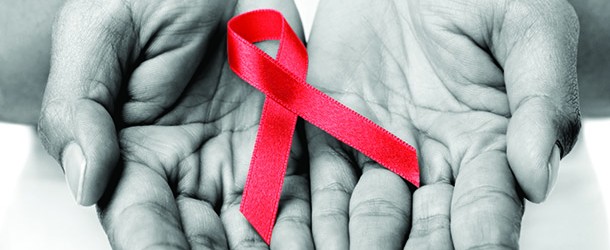As the global COVID-19 pandemic rages on, two groups of people continue to be the most at risk for becoming seriously ill or dying from this new virus: those over the age of 60 and those with pre-existing conditions – including HIV/AIDS.
If you’re a person living with HIV (PLWHIV), adhering to your treatment regime and keeping your immune system strong is even more critical now. As a recent Fenway Institute policy brief noted, PLWHIV who are not treatment adherent and virally suppressed are at the most risk for critical or fatal COVID-19 complications.
Fortunately, there are steps that PLWHIV can take every day to maintain good health and wellness during COVID-19 and beyond:
If you don’t already have a treatment plan, get connected to care.
Having a primary care provider (PCP) who can prescribe and manage your medications and create a care plan is absolutely essential for anyone living with HIV. You deserve a full and healthy life, and that is absolutely possible with the right treatment. If you are uninsured, underinsured, or experiencing financial difficulties, there are programs that can help you get into care.
If you live in Massachusetts, our Fenway Health staff can help you enroll in insurance or apply for financial assistance. Another great option across the country is the Ryan White HIV/AIDS Program, which works with health departments and local community-based organizations connect PLWHIV to medical care and other support services. Click here to find a Ryan White HIV/AIDS care provider near you.
Take your medications daily.
Caring for your immune system is incredibly important. Make sure you’re taking your antiretroviral (ARV) medications every day as prescribed by your doctor. ARVs will keep your CD4 count up and your viral load down, maintaining a healthy immune system and significantly lowering your chances of passing HIV to a partner.
Stay on top of your prescriptions.
Don’t risk running out of your medications! Make sure your prescriptions are all up to date, and refill them as soon as possible. You should try to always have a 30-day supply on hand. Speak with your provider about getting monthly supplies ahead of time. Some insurance plans will allow you to order a 90-day supply of medications at once or refill your prescriptions early.
Don’t miss a doctor’s appointment.
Make sure you’re keeping up with your regular HIV treatment plan, including your scheduled check-ups and lab work. Your provider will monitor your CD4 levels and viral load to ensure that your medications are working correctly. They can also check to see if you’re up-to-date with your flu shot and other important vaccines.
If in-person visits aren’t possible right now, ask your provider about a telehealth or phone appointment. And always contact your provider if you are not feeling well or if you are having any problems with your treatment plan.
Be kind to your body.
Keeping your body in good shape will better prepare it to fight disease. Eat healthy and nutritious meals everyday. Exercise regularly – there are many great options for working out at home. Avoid tobacco use or excessive alcohol consumption. Explore ways to reduce stress and anxiety; that may seem especially difficult right now, but your mental wellbeing is just as critical as your physical health.
Want to learn more about staying healthy during COVID-19? Here are more resources for PLWHIV:
- Fenway Health: Coronavirus, COVID-19, and Considerations for People Living with HIV and LGBTQIA+ People
- The CDC: COVID-19: What People with HIV Should Know
- NASTAD: COVID-19 Updates and Resources
- HRSA Ryan White HIV/AIDS Programs: Coronavirus (COVID-19) Frequently Asked Questions
- HIV.gov: Coronavirus (COVID-19) and People with HIV
- NIH / AIDSinfo: Interim Guidance for COVID-19 and Persons with HIV
- HIVMA: COVID-19: Special Considerations for People with HIV
- TheBody: What You Need to Know About the New Coronavirus and HIV


